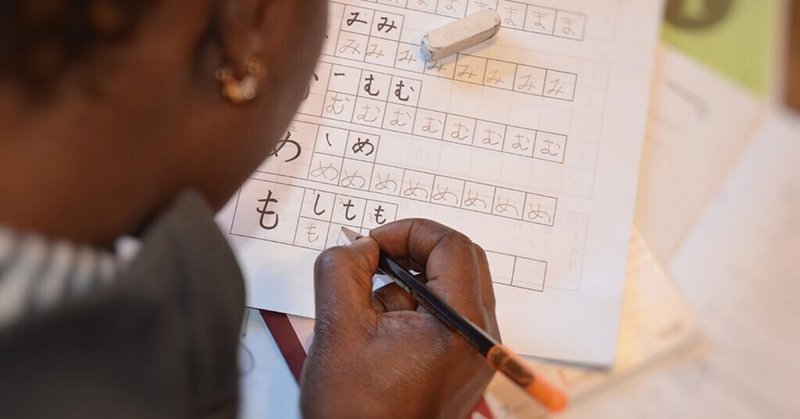
14 A Society in Which Asylum-Seekers Can Reside in Safety, and in Which Refugees are Protected
Twenty-seven year-old Ahmed who was born and grew up in a country in Africa studied computer science at a university in his home country, dreaming of becoming a programmer. He also belonged to an opposition party, Party A, and protested the unreasonable human rights oppressions by the government. Shortly before graduation, government suppression increased, with citizens participating in demonstrations on the streets being detained or killed. Anti- government activists including members of Party A were arrested one after another. Schools were closed, and fearing that he may be the next to be arrested, he decided to go abroad. As he made the decision, he was able to acquire a Japanese visa (in the context of Japan, a residence status).
At the time of his arrival in Japan, he had a short-term residence status for 15 days. The 15 days quickly passed while he was asking around about the application for refugee status, and his residence status expired. He was able to apply for refugee status a month later, but was told that people who overstayed their residence status could not work. He was aghast that he could not make use of his skills in Japan. His dream of restarting his studies also vanished.
Since then, he received financial assistance of 1,500 yen per day from the Refugee Assistance Headquarters, and was finally interviewed after one year. The decision came another year later. He was refused recognition as a refugee. The written reason stated that “there was no proof that you participated in demonstrations and other acts as a member of Party A, and it could not be found that you have been scrutinized with special attention by the government.” It was impossible, however, for Ahmed to produce evidence of each of his activities, because it was dangerous to leave such evidence. It was also impossible to provide proof that the government was aware of Ahmed being a member of Party A.
Ahmed is going to request an administrative review. But how long will it take? Will he be detained? How can he survive until a decision is made? His mind is full with all of these anxieties.
▶ A country with a particularly low recognition rate – Japan
In Japan, whether or not a refugee applicant holds a valid residence status at the various stages of application has a great impact on the applicant’s subsequent livelihood. Some applicants do not have a valid residence status for various reasons, and they are placed at a disadvantage compared to those with such a status. Recently, “distinctions” are being drawn even among those with a valid residence status, with some given restrictions on work or limited terms of residence (which would mean they would be subject to deportation procedures). Many of them have skills like Ahmed, but they will not be able to find ways to make use of them in Japan. And most of the applicants who do not have a residence status face detention and deportation, leading to situations that are in conflict with the principle of non-refoulement stipulated in Article 33 of the Refugee Convention.
To begin with, the interpretation and standards of the Refugee Convention applied in Japan is far below international levels. The reasoning, “it could not be found that you have been scrutinized with special attention,” used to deny Ahmed’s refugee status, is asking for something that is impossible for the applicant to prove. The international principle of the “benefit of the doubt” in the procedures for refugee recognition has never been applied in Japan. The result is apparent in the notably low number of refugee recognitions – 44 in 2019 and 47 in 2020, amounting to a recognition rate of less than 1% (Figure 9). The UNHCR Global Trend in 2017 singles out Japan “as having a particularly low TPR” (Total Protection Rate).
▶ A refugee recognition system in line with international standards
The Ministry of Justice prioritizes the prevention of abuse and misuse of the refugee recognition system, but because of its excessive prevention measures, recognition of refugees has become extremely difficult – and as a result, the objective of protecting refugees has retreated into the background. The UNHCR has repeatedly explained that creating a fair refugee recognition system would deter its abuse.
In order to achieve a system in line with international standards, the following steps are called for: (1) The refugee recognition procedures must be placed under a separate and independent body from the Immigration Services Agency to improve transparency, objectivity, and expertise of the procedures. (2) Even under the current system, the refugee recognition criteria must promptly be made to comply with international standards. (3) Applicants must not be treated differently depending on whether he/she has a valid residence status or not. All applicants must be provided with minimum subsistence and public assistance (including a change in residence status matching the applicant’s skills). Detention should be avoided in principle, and restrictions on residence statuses due to excessive measures to prevent abuse of the refugee recognition system must be suspended. (4) There must be broad social recognition of both the existence of refugees who are protected under the Refugee Convention as well as the significance of their protections.
この記事が気に入ったらサポートをしてみませんか?
